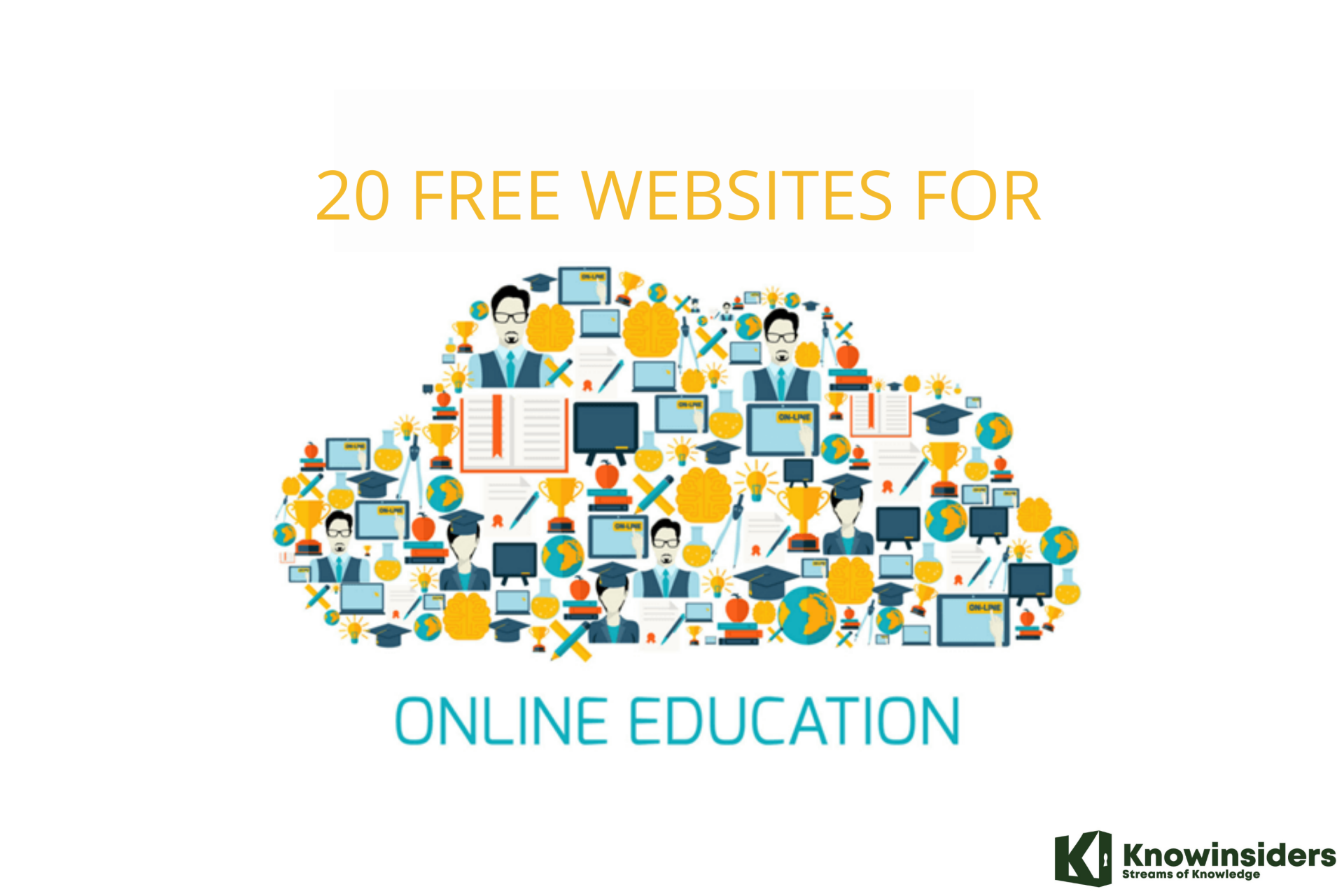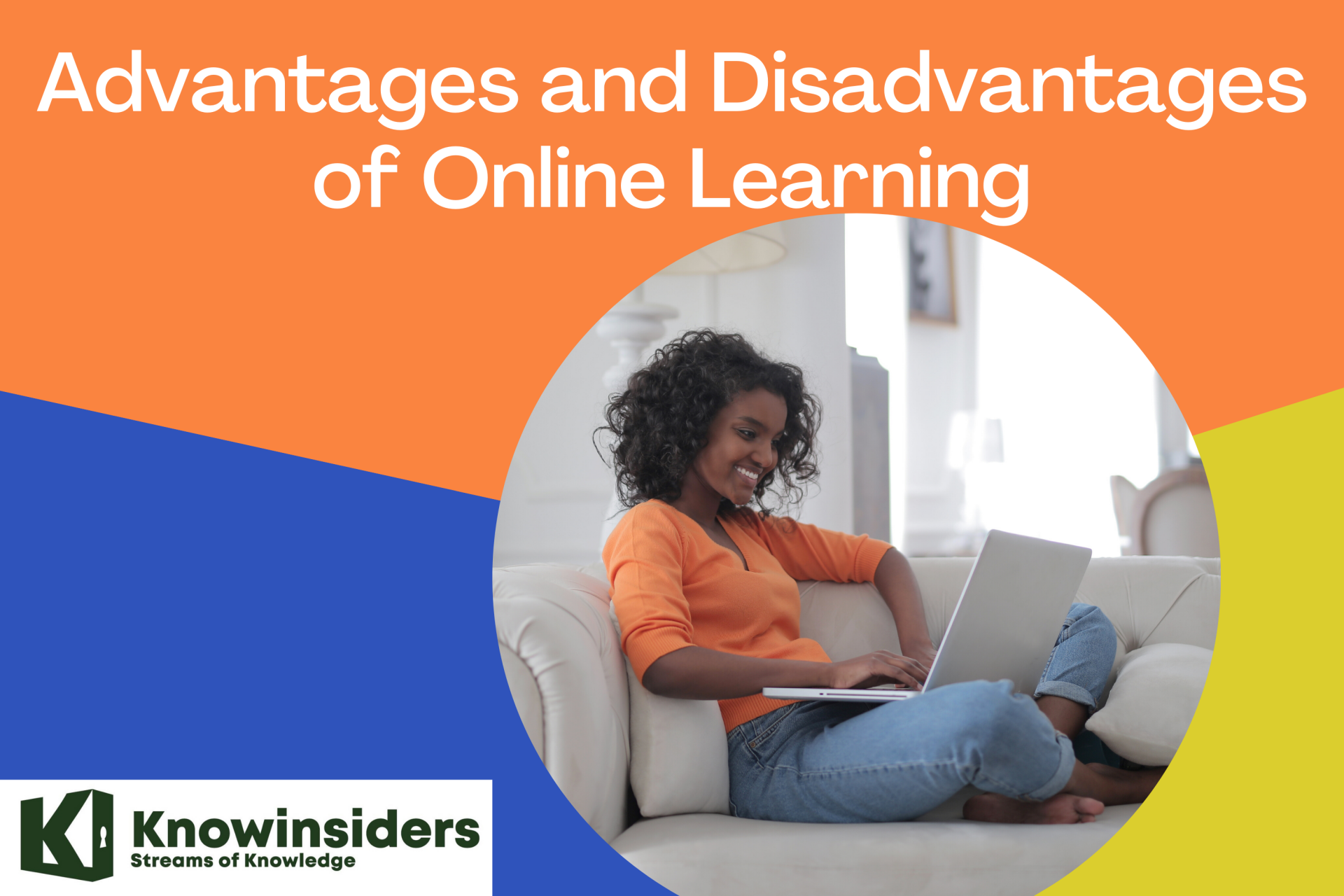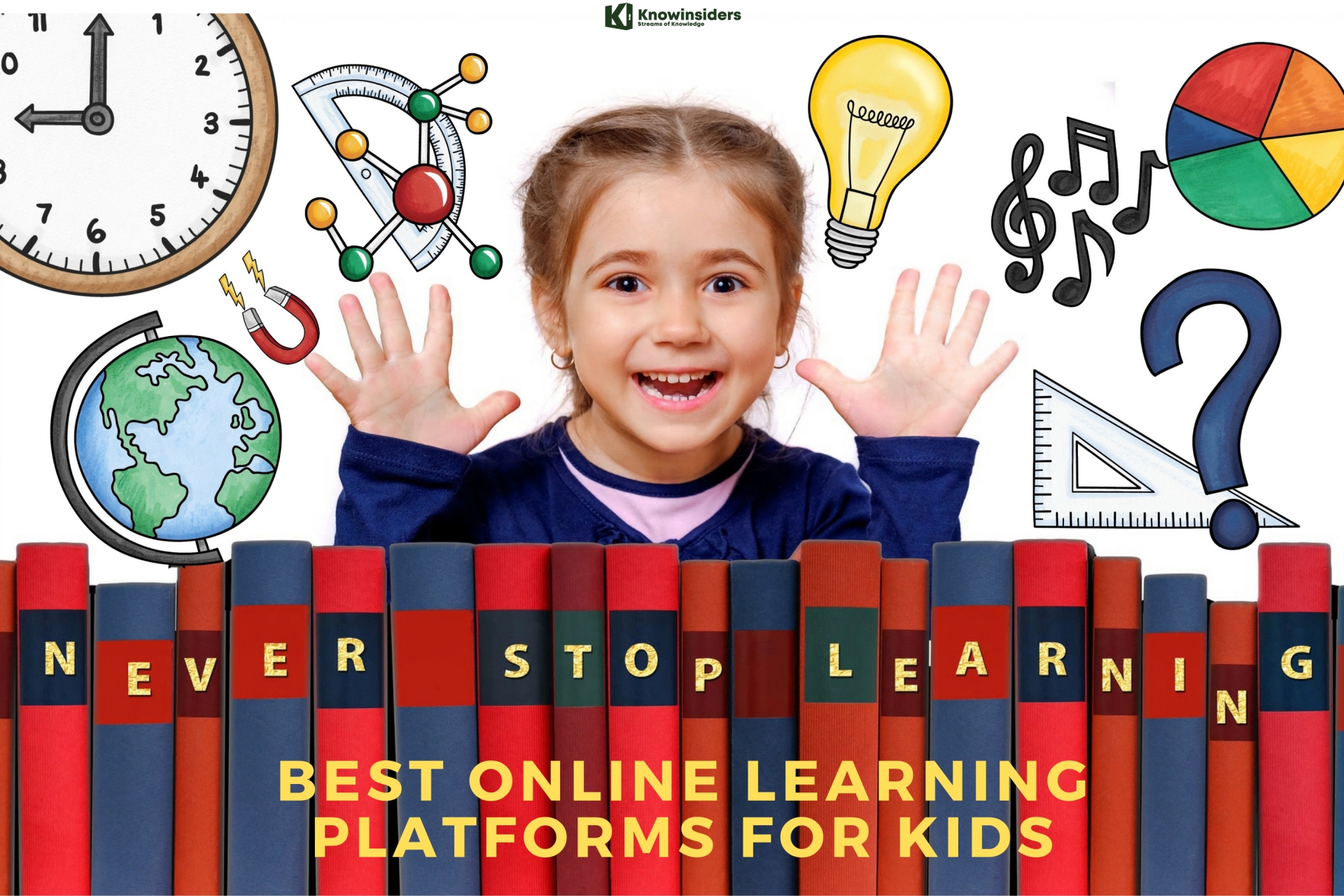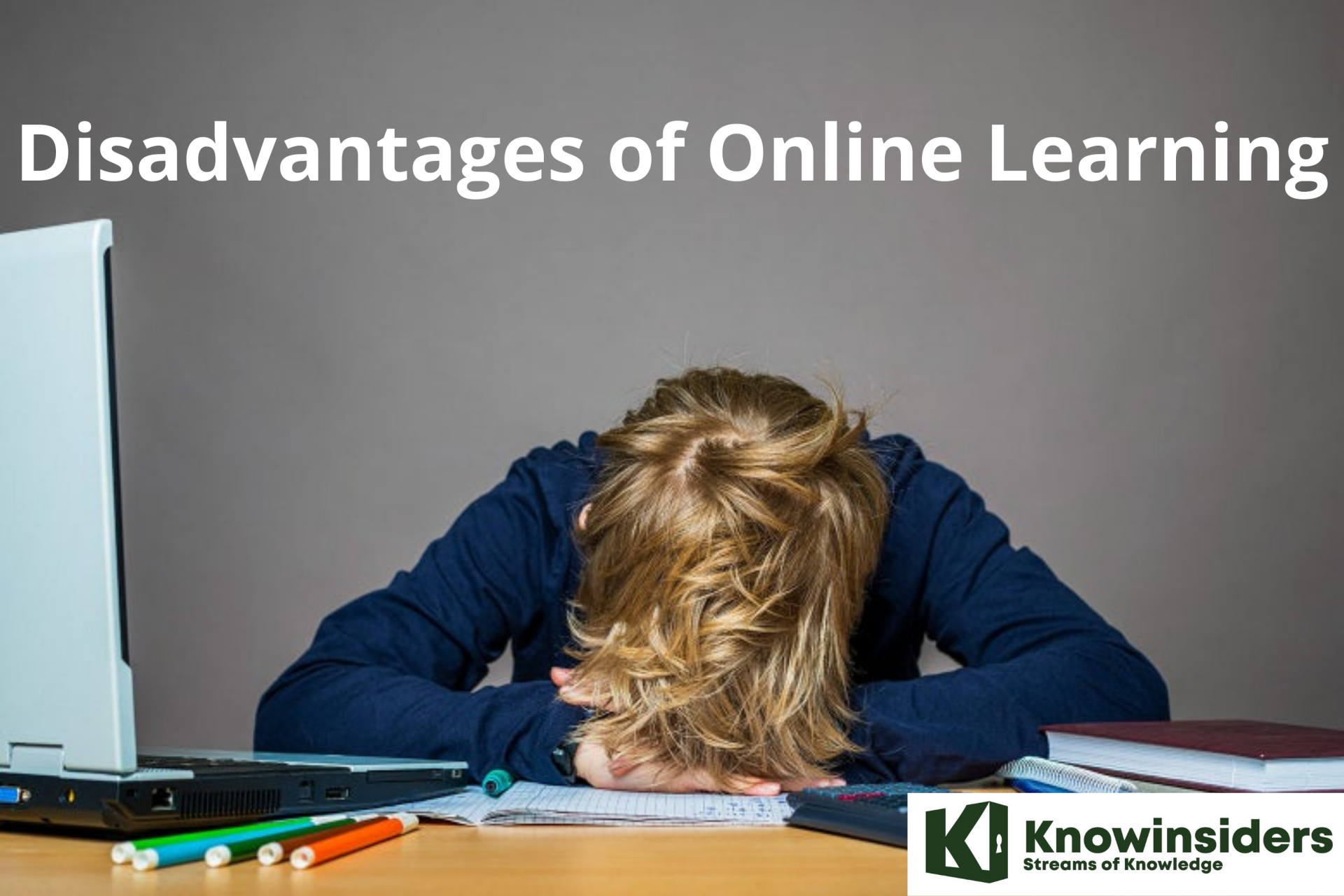What Are The Advantages and Disadvantages of Online Learning?
 Top 10 Largest Platforms for Online Learning Around The World Top 10 Largest Platforms for Online Learning Around The World |
 Top 20 Best Free Sites for Online Education In The World Top 20 Best Free Sites for Online Education In The World |
 |
| What are Advantages and Disadvantages of Online Learning? |
Online classes are typically a mix of video recordings or live lectures supplemented with readings and assessments that students can complete on their own time.
But nothing is typical about education in as the coronavirus has forced a sudden migration to online learning with little time to prepare for it. Below we'll examine some of the benefits this exciting education provides to such students as well as the disadvantages that affect student life.
What is Online Learning?
Online education is a type of educational instruction that is delivered via the internet to students using their home computers.
Online degrees and courses have gained popularity over the past ten years as viable choices for a variety of nontraditional students, including those who wish to maintain full-time employment or raise families. Although some are delivered using other technologies, online degree programs and courses are typically offered through the host school's online learning platform.
Online education liberates the student from the typical burdens of on-campus degree programs, such as driving to school, scheduling their schedule around classes, and being physically present for each sequence of their coursework, even though there are subtle differences between online and traditional learning.
 10 Best Online Learning Platforms For Kids In The World 10 Best Online Learning Platforms For Kids In The World Onlien learning is becoming popular in the time of COVID-19. What are the best online learning platforms for your kids in the world? |
What are The Advantages of Online Learning?
1. Flexibility
Due to the lack of a set schedule, students are free to balance their employment and education. In a traditional classroom, meeting times are predetermined, and students are powerless to change them, which forces them to plan their schedules around these times. The majority of people who select online learning typically have other obligations and favor this style of learning since it provides them control over how they will allocate their time to their many assignments.
2. Reduced Costs
Online education can cost less due to a variety of reasons. For example, there is no cost for commuting. Assorted costs that are related to transport, such as fuel, parking, car maintenance, and public transportation costs don't affect the online student.
3. Networking Opportunities
Online education also provides students with the chance to network with peers across nations or even different continents. This often leads to other opportunities in terms of collaboration with other individuals in the implementation of a project. At the same time, it makes them culturally sensitive and able to fit into other environments easily given their exposure to other cultures.
4. Documentation
All of the data you want will be securely kept in an online database. This includes items like emails, training materials, and documents used in real-time discussions. This implies that the student will be able to quickly access these materials if any information needs to be clarified, saving significant time. This is particularly helpful for those who must conduct research for a project and present their findings before a panel.
5. Increased Instructor - Student Time
Traditional classroom settings might not provide students with the individualized attention they require to understand ideas. Although CCA has small class sizes, most colleges have classrooms with hundreds of students. This is not a problem for this sort of education because online classes are characterized by guided discussions and one-on-one time with professors and lecturers.
Due to the time their instructors provide them, this raises a student's chances of achieving well. This improves their capacity for problem-solving and communication, as well as their ability to present a convincing case to superiors when necessary.
6. Access to Expertise
An online college education might give students access to specialized degree courses that may not be available in an easily accessible or local institution of learning. Online classes allow the sharing of expertise that helps more people have access to education that is not readily available in certain geographic locations.
Over the past few years, this kind of schooling has expanded and gained widespread support. You have more control over your learning environment when taking classes online, which ultimately aids in your ability to comprehend your degree program better. There are constantly new learning models emerging on the market, giving students numerous chances to customize their education to fit them rather than the other way around.
Also, it gives people the chance to complete a degree that they may have started but were unable to finish for a variety of reasons. Online degree programs have a bright future and are more accessible to the general public than ever before.
What to Expect in an Online Course?Online learning can take all sorts of shapes and sizes. So, what to expect varies widely depending on the type of course or program you seek. An online course that is free of charge could be the solution if you want to learn the fundamentals of a particular subject. They have a higher likelihood of being self-paced, which frequently means less immediate direction from an instructor. Almost any topic area that comes to mind has offerings, including both soft and hard abilities. If you want to make a more significant career transition or move up to a managerial position, you can think about enrolling in a paid online program that offers a certificate (or help members of your team move into new internal positions or gain new skill sets). Among other things, this credential could be a certificate, a professional certification, or even a whole online degree. |
 What Is Online Education and Changes from The Covid-19 Pandemic? What Is Online Education and Changes from The Covid-19 Pandemic? If you are new to online learning, you might be wondering what it is and how it works and how does it changes from the ... |
What are The Disadvantages of Online Learning?
 |
| Photo: KnowInsiders |
1. Inability To Focus On Screens
For many students, one of the biggest challenges of online learning is the struggle with focusing on the screen for long periods of time. With online learning, there is also a greater chance for students to be easily distracted by social media or other sites. Therefore, it is imperative for the teachers to keep their online classes crisp, engaging, and interactive to help students stay focused on the lesson.
2. Technology Issues
Internet connectivity is another significant issue for online learning. Although the number of people using the internet has increased dramatically over the past few years, it can be difficult to get a reliable connection with adequate speed in smaller cities and towns. A child's learning may not be continuous if there isn't a reliable internet connection for them or their teachers. The educational process will be harmed by this.
3. Sense Of Isolation
Being around peers allows for a wealth of learning opportunities for students. There are fewer in-person interactions between students and lecturers in an online course. The students frequently feel alone as a result of this. It is crucial that the school permit other methods of communication between the kids, peers, and teachers in this circumstance. Online chats, emails, and video conferences that enable in-person communication and lessen the feeling of isolation can be included in this.
4. Teacher Training
Teachers who use online learning must have a fundamental understanding of using digital learning tools. This isn't always the case, though. Teachers frequently possess a very fundamental understanding of technology. They occasionally even lack the equipment and resources needed to hold online classes.
Schools must make an investment in providing teachers with the most recent technological advancements in order for them to conduct online classes smoothly.
5. Manage Screen Time
Many parents are concerned about the health hazards of having their children spend so many hours staring at a screen. This increase in screen time is one of the biggest concerns and disadvantages of online learning. Sometimes students also develop bad posture and other physical problems due to staying hunched in front of a screen.
A good solution to this would be to give the students plenty of breaks from the screen to refresh their mind and their body.
What are the impacts of Covid-19 on Online Learning?
 |
| Photo: KnowInsiders |
Imagine the impact the coronavirus has had on education. At one point it’s thought that nearly 1.5 billion children in 186 countries were affected by school closures. This forced schools to adapt quickly in an effort to provide ‘education as usual online. The same is true of colleges and universities all over the world, with digital platforms becoming the new classrooms virtually overnight.
Research suggests that students retain 25-60% more material via e-learning compared to only 8-10% in a classroom. This is explained by the fact that students learn faster online, with e-learning requiring 40-60% less time than a classroom.
Flexibility and great student experience
‘There is a minimum expectation that has come from the classroom of what students need to know and learn, but online education allows you to take this further,’ said Conor Motyer, ACCA course director at Learnsignal. ‘It gives students not only the flexibility to study and approach learning in the most efficient way, but it allows them to do so at a time that suits them.’
Online learning is focused on a student’s experience, continued Motyer. ‘We’re able to collate all the data we have of different students and then tailor the experience for individuals, not only in a way that allows the student to be as engaged as possible, their study to be as effective as possible but also in the way that we know leads to the best results. And it gives you all of this at your fingertips whenever you want and wherever you are in the world.’
Online learning is engaging and innovative
Online classes can be recorded, so you don’t have to take as many notes and you can pay more attention during the lesson. New technology can also make the lessons more engaging and interesting, with visualizations, videos, live quizzes, chats, and group work among some.
Online learning has come a long way from online PowerPoints
‘Many people still think of the old-style e-learning format when they think of online learning, which can put many people off, when actually, while you may still see some of the old-fashioned ways of doing things – clicking through PowerPoint presentations, for example – online learning is now so much more than that,’ said Tanya Worsely FCA, Head of International Markets at Kaplan.
It is intended to be as participatory and interesting as being in a traditional classroom. Additionally, it implies that we can respond to situations like COVID-19 with little disruption to our academic work. It's a setting that a student can customize for themselves while interacting with other students pursuing the same qualification around the globe.
Online learning is not isolated
"You may be studying from a distance, but you are not studying alone." SKANS Ecampus's Moneeza Siddiqui, center head of the SKANS School of Accounting, says We work to ensure that the experience is not isolated, as this is a major worry that many students have when they first start learning online. To help students stay on track and complete their study and exam objectives, we strive to make study support very entertaining and personalized for each individual student.
Online saves times
Online education is more accessible. There’s no commuting to class. You can jump out of bed and join a lesson. This can give you more time to study and plan your day outside of learning commitments, and if you decide to relocate to a different city or even country – you can still continue your studies uninterrupted.
Is An Online Degree Right for You?Be careful to think about the advantages that online learning has to offer while deciding whether or not to pursue a masters degree online. An online master's degree can be the perfect answer for those who struggle to balance career, family, and education. Also, earning a degree online can help individuals enhance their careers and show off their critical talents to prospective employers. No matter the format, completing a master's degree positions you to make much more money in your lifetime than someone with a bachelor's degree. Also, you'll have additional employment alternatives because, by 2022, 18% of positions will demand a master's degree. Studying online expands on these advantages and helps you get ready for the more globalized workplace of today. |
 What Is Social Media Marketing: Definition, Strategies,Advantages and Disadvantages What Is Social Media Marketing: Definition, Strategies,Advantages and Disadvantages Social Media Marketing is one of the most important parts that you need to understand if you want to expand your business and let others ... |
 Top 10 effective educational games for your kids Top 10 effective educational games for your kids Here let us have a look at some of the top educational games for kids that teach them various aspects of learning without losing the ... |
 Top 4 Useful Educational Games For 8-year-old kids Top 4 Useful Educational Games For 8-year-old kids Children these days are practically born with the ability to use a smartphone, Ipad and have an immediate understanding of technology from a young age. ... |


























